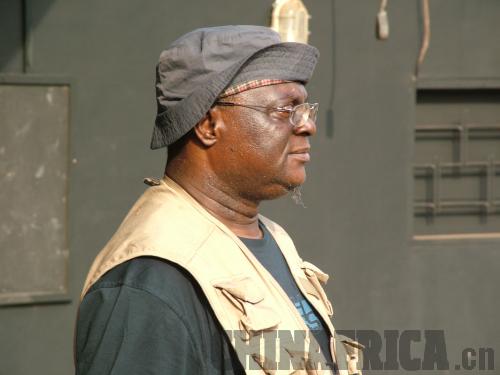| This year, Chinese writer Mo Yan won the Nobel Prize in Literature. As people celebrated, Wole Soyinka, the first African Nobel Prize winner in Literature, paid a visit to China. Both of these authors have shifted people's attention again toward literature. Recently, two professors shared their opinions on the topic of literary development in China and Africa.

Femi Osofisan, Nigerian critic, poet, novelist, and playwright, visiting professor at Peking University
African literature is diverse and vast. There are so many countries and so many languages in Africa. Literature is often published in the national languages, which are usually European languages, because of our history of colonization. Otherwise we have more than 300 languages. In Nigeria, many of these languages have their own literature, so we have literature in English, and we also have literature in Yoruba and Hausa. I think all African countries have similar situations.
Don't forget, written literature was not very developed before the colonists arrived. Most literature and culture was passed on orally; and Westerners were the people who brought written traditions. It was through them that we could develop our literature. Therefore, there is a lot of influence from Western countries and literature. Most of this has been a direct influence. We copied them and tried to write the same kind of thing. There is also a counter-influence in which a lot of people from newer generations want to cut off European influences, so they research our own traditional forms and have created a different kind of literature.
In early literature, a lot of authors dealt with this cultural clash, but that was many decades ago, and now it's no longer a central topic. Of course, every culture is concerned with its preservation, but I think some old cultures can no longer be maintained. We may look back with some kind of nostalgia, but it's inevitable. Society just changed and things move on. We now have to face a different set of problems. What we have in Nigeria now is a growing disparity between the few wealthy people and the impoverished masses. Most writers are preoccupied with human and social problems like these, and explore how to maintain justice while developing.
It's difficult to say what the trend is in African literature. Because literature itself is facing a problem now, I guess this problem is worldwide: young people are more and more addicted to the screen and the Internet. In reading literature, fewer and fewer people require reading in our country. There is a campaign in my country to get people reading and promote literature. But you also have to reach different demographics. For example, you have to offer books cheaply, and you have to make printing presses work.
Readership is a problem we have to think about. I think much of our literature is not yet on the Internet. In fact, this is ironic. At the same time people are getting more and more from the computer, but in Nigeria we have the problem of access and we are in danger of being completely illiterate. To get Internet is difficult and to get books is not easy either. We are in a transitional phase. What new forms of writing will emerge is the challenge we need to face right now.
While teaching at Peking University, I have learned a lot from my Chinese students. They tell me how similar things are in China and Africa, and how China has been more successful in modernizing. I am really impressed by what's going on in China. I want to write a play about this relationship between China and Nigeria. I myself need to know much more about Chinese culture before I have enough confidence to do that.
|